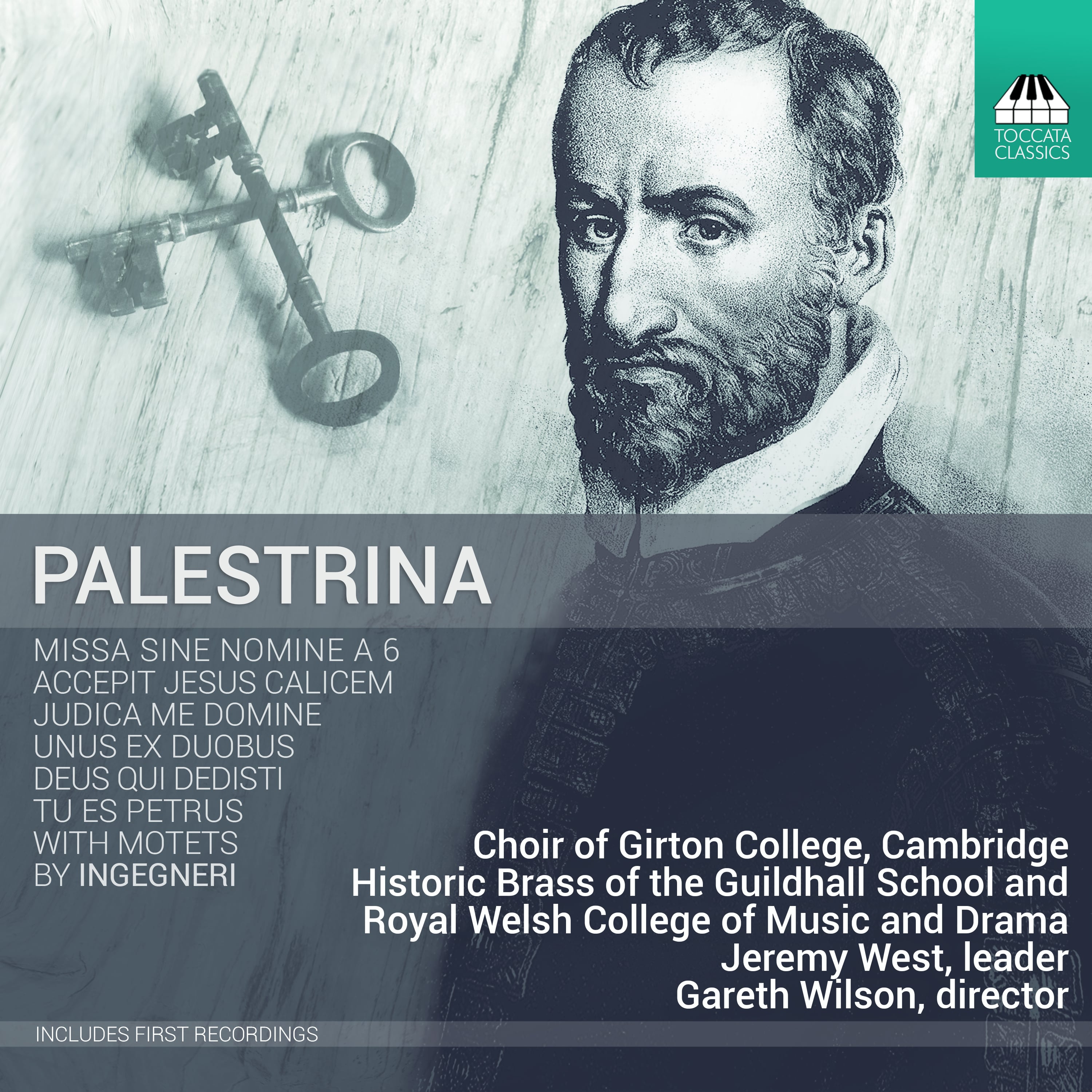Choir of Girton College, Cambridge; Historic Brass of the Guildhall School of Music and Royal Welsh College of Music and Drama, Gareth Wilson, director
77:20
Toccata Classics TOCC 0516
Palestrina: Missa sine nomine a6, Deus qui dedisti, Judica me, Accepit Jesum calicem, Unus ex duobus, Tu es Petrus, Ricercars quarti and octavi toni. Ingegneri: Super flumina Babylonis, Duo seraphim, Lauda Sion.
Besides the mass, this disc contains motets and ricercars by Palestrina, plus three motets by his contemporary Marc’Antonio Ingegneri. Vocal works are performed a cappella, accompanied wholly or in part by brass, or by brass alone. There is evidence that in Rome at this period, for major festivals, extra singers and instrumentalists were hired for liturgical performances at some sacred venues, so this disc provides examples of the variety of possible performance practices for this music. Palestrina’s Mass is accompanied throughout except in certain passages of reduced scoring such as the Christe eleison. According to Gareth Wilson (email to reviewer), it was felt that the quality of the works by Ingegneri that are recorded here is such that he deserves a project of his own, so he will be the focus of Girton College Choir’s next tour; perhaps he will reappear on a future recording as well. Seemingly his Super flumina Babylonis made its point during their recent tour of Israel and Palestine.
Listening to the Kyrie and Gloria of Palestrina’s Mass, albeit with brass accompaniments arranged by Gareth Wilson, it comes as no surprise to learn that J.S. Bach arranged brass parts for accompanying these movements during Lutheran services. It might have been interesting on this disc to have heard the work with his brass accompaniments, with the remaining movements arranged in imitation of his style. This is not to say that Gareth’s arrangement is inadequate in any way.
In those vocal works which are performed by brass alone, or for one voice-part with brass playing the rest, the feeling occurs that one might have referred to hear words in all parts, the better to appreciate Palestrina’s word-setting. That said, the use of historic brass defines each part very clearly so that one can appreciate his polyphony and any occasional harmonic felicities or dissonances.
Girton College Choir sings well and responsively, Historic Brass play idiomatically and stylishly, and Gareth Wilson’s chosen tempi are judicious and serve the music well. Palestrina’s ricercars are undistinguished, but his Mass is entirely the opposite, with Kyrie and Agnus outstanding even by his standards. Similarly, the motets are so fine that it is astonishing that all but one are receiving their first commercial recordings.
Richard Turbet
Palestrina: Missa sine nomine a6
